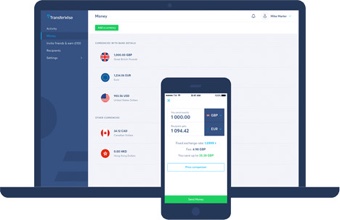How to Open a Business in the UK - A Full Guide

In the UK already or planning to move there to start a business? You need this guide.
The UK is a large and strategic market, with many startups and small companies being launched every year. In fact, in 2020, over 13 million people were employed in the smallest of businesses.
While opening a company isn’t exactly straightforward - there’s a fair bit of paperwork for some business entity types - it is pretty easy to get support and find all the information you need to move ahead. Start with this guide to build an idea of the steps you’ll need to take to open a business in the UK.
Can I open a business in the UK from abroad?
You can open a business in the UK regardless of your nationality and resident status. You’ll need a UK address to get started, but basically the way you go about registering is the same whether you’re in the UK or not.
One important note is that you’ll probably have to register your business as an overseas company with Company House in the UK if you want to run a business with a base in the UK, but you’re not a resident.
The easiest way to set up a business in the UK - especially if you’re abroad - is to go through an agency. You’ll pay a fee, but it cuts out a lot of the hassle of navigating a foreign system. That said, it is perfectly possible to register as a sole proprietor within the UK, or set up a limited company inside or outside the country, without an intermediary.

The steps to open a business in the UK
Let’s take a look at the broad steps you need to take to open a business in the UK. Each situation will be unique, so checking the details for yourself - and taking advice where necessary - is essential. A good starting point is the UK government’s webpages on setting up a business, which have lots of handy links and information about the legalities and formalities required.
1: Types of business entities in the UK
The most common business structures in the UK are:
- Sole traders
- Limited companies
- Partnerships
Each entity type has different legal obligations and reporting requirements. A sole trader is a self employed individual business person - all the profits of the business after tax are yours to keep. You’ll also have liabilities if the company is in debt.
Limited companies can be limited by shares or limited by guarantee. In the case of a limited by shares company, the profits can be distributed as the business owners see fit. Limited by guarantee, companies are usually not for profit so the earnings go back into the organization. If you choose to enter a partnership both you and your partners are liable for the debts of the business, and can share in the after tax profits.
2: How to register a business in the UK
Choose the right business entity for your needs
We’ve outlined above the most common entity types available in the UK. Which suits you is down to the work you plan to do, your personal preferences and where you think you’ll ultimately take the business. If you’re starting a business in the UK as a non-resident this will guide your choices - taking professional advice is a smart move if you’re unsure which route to follow.
Check your preferred business name is available
There are rules about how you name your company - even if you’re a sole proprietor. Key points are that your name must not be offensive - and can not already be taken by another business. Check for registered business names and trademarks on the Company House tool.
If you’re a sole proprietor trading under your name you don’t need to register it. However, if you’re using a company name - under any of the business entities - you can trademark it to make sure nobody else tries to use the same title.
Prepare your paperwork as required
The requirements here vary very much from one business entity to another. If you’re setting up a limited company you’ll need to prepare far more compared to sole traders. Limited company business owners need to take actions including:
- Choose directors and company secretary
- Identify shareholders and people with significant control(PSC) over your company
- Prepare a memorandum of association and articles of association
The good news is that there’s a lot of guidance about what this all means, if you look on the UK Government website. You can also find the full details required to pull together the documents needed for a sole trader and a partnership, too.
Check what records you need to keep
You’ll need to keep adequate records to be able to file your personal taxes, your company accounts and annual tax return. Exactly what this looks like depends on whether you’re a sole trader, partner in a partnership or running a limited company. In all cases you might choose to have a professional accountant help you out - especially if the UK’s systems and requirements are not familiar to you.
In all cases, keep records of:
- Sales and expenses
- VAT
- PAYE if you pay employees
- Details of assets and stock
As a limited company you have additional requirements including registers of directors, shareholders and PSC. You’ll need to keep records for 6 years as they may be subject to audit.
Register your business
In most cases if you’re a sole trader or partner in a partnership you’ll only need to register for a National Insurance Number if you don’t already have one, and tell HMRC you are self-employed. That’s because you’ll have to do a tax self assessment annually to pay your tax.
If you run a limited company your registration process will be more cumbersome. You’ll need to register your company address with Company House and choose a SIC code. This identifies the type of business you run. You’ll also need to register for corporation tax, although this can usually be done at the same time as all the other registration processes take place.
Learn about hiring employees
Before you hire anyone - even a contractor or freelancer - it’s worth understanding how employing people in the UK works. If you hire employees for your business you’ll probably need to set up payroll, keep records and set up a PAYE - pay as you earn - system for tax withholding. Even if you’re only working with contractors and freelancers - rather than bringing people in house, you might have responsibilities towards them that you should understand in advance.
3. Opening a bank account in the UK
To keep your business finances separate from your personal spending money you need a business account.
You can choose to open an account with one of the Big 5 British banks:
- HSBC
- Lloyds
- RBS
- Barclays
- Standard Chartered
Or opt for an alternative online account from a fintech provider like:
Each option has ups and downs. Big banks have a full range of products which often include access to financing and tools to help grow your business. They often also have high fees for some services, and may require businesses to meet eligibility or minimum balance criteria.
Fintech companies have come onto the scene more recently and have online and mobile account options which have been built for modern businesses. Many have specialist features such as multi-currency accounts or access to crypto currency trading, and because of the low overheads, the costs are often lower too.
Learn more about opening a business account in the UK, in this full guide.
If you are interested in holding money in GBP, check out our Best GBP accounts in the US article.
4: Finding an accountant in the UK
Get an accountant to make sure your business finances are kept in good shape while your business is growing.
If you don’t have any local insight or recommendations for an accountant in the UK, the Institute of Chartered Accountants in England and Wales - ICAEW - is a good place to start. Check out the ICAEW tool to find an accountant or accounting firm near to your location - you’ll know they’re professional and fully qualified, so you can leave them to it while you get on with running your business.
5: Legal obligations and responsibilities
As a business owner in the UK you have a broad range of obligations under law - even once you’re all fully registered. Make sure you’re very clear on the responsibilities you have as your business expands. The details vary depending on the type of business you own, but can include:
- Getting adequate insurance
- Complying with licencing requirements
- Managing health and safety for you, your team and your customers
- Complying with labor laws including checking the right to work of employees, sending formal contracts, ensuring proper working hours
- Working within discrimination and equality laws
- Complying with data and privacy laws
Where can you get professional advice and help from?
Hopefully you’re excited at the prospect of opening a business in the UK. It always pays to have a good team on side and know where to access more advice, inspiration and ideas. Here are some final suggestions:
- Go through the government’s advice about starting a business in the UK- it’s full of invaluable detail about the legal processes required
- Check for government based financing and support, online
- Draw on resources from innovation foundations like Nesta
- Look at the UK’s Federation of Small Businesses for more ideas
- Join LinkedIn groups or in person networking events in your niche to meet others sharing your journey
Starting a business is a big deal. But you’re not alone, and can access a bunch of useful help and support both on and offline. You might be interested to know that there are nearly 6 million small businesses in the UK, providing some 60% of private sector employment.
Your currency knowledge centre
Best International Money Transfer for Businesses?
Looking for the Best International Money Transfer for Businesses? Here's 6 of them.
- Read more ⟶
- 5 min read
Should You Use Wise to Wire Money Overseas?
Our biggest, most comprehensive look at one of the most popular money transfer companies in the world. All the information you need to make the right decision.
- Read more ⟶
- 8 min read
International Money Transfer Comparison and Reviews
Doing an international money transfer with your bank can cost you a lot more than its worth. By the end of this article, you'll find out how to transfer funds internationally without paying too much.
- Read more ⟶
- 5 min read
General advice: The information on this site is of a general nature only. It does not take your specific needs or circumstances into consideration. You should look at your own personal situation and requirements before making any financial decisions.



